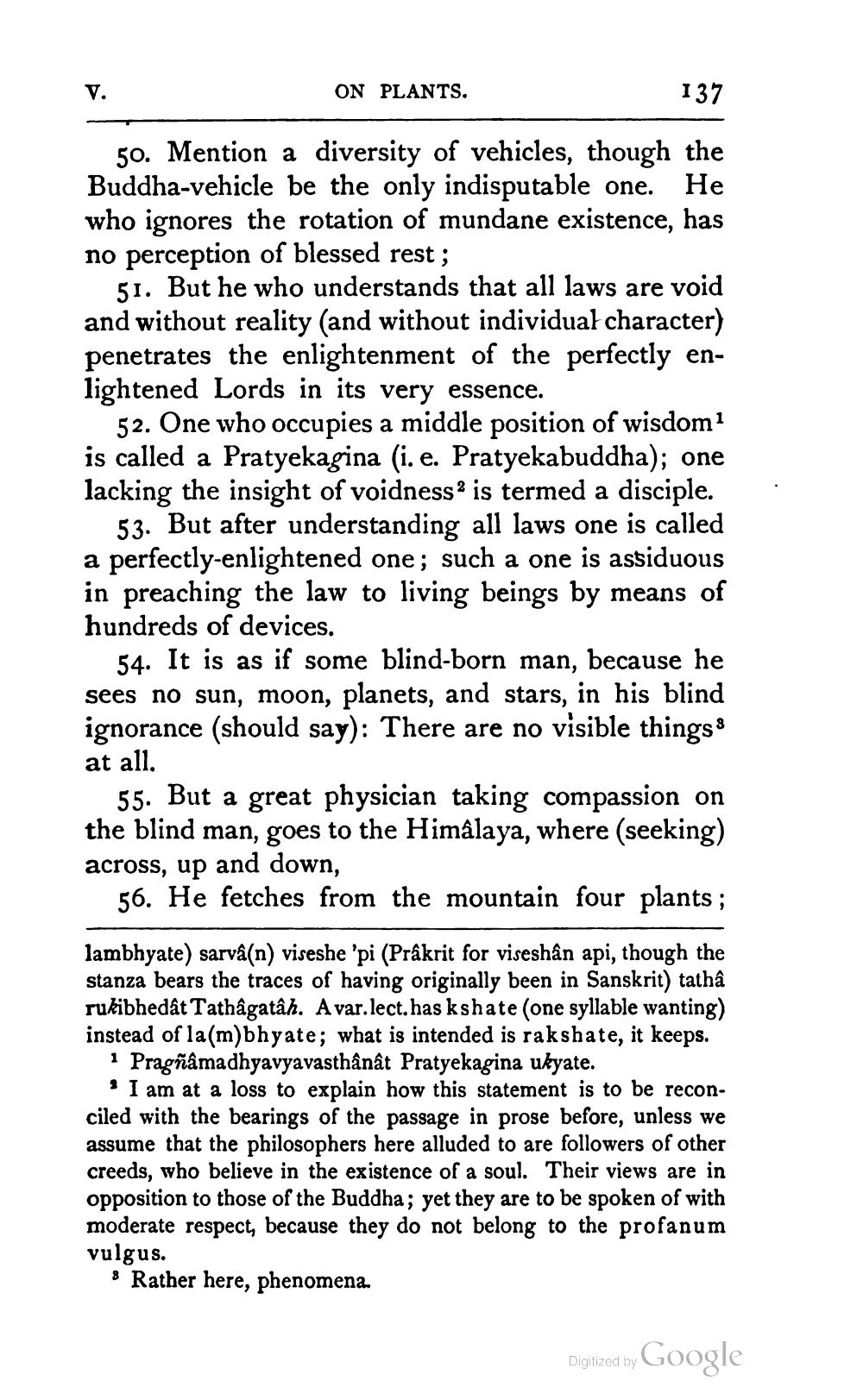________________
ON PLANTS.
137
50. Mention a diversity of vehicles, though the Buddha-vehicle be the only indisputable one. He who ignores the rotation of mundane existence, has no perception of blessed rest;
51. But he who understands that all laws are void and without reality (and without individual character) penetrates the enlightenment of the perfectly enlightened Lords in its very essence.
52. One who occupies a middle position of wisdom is called a Pratyekagina (i.e. Pratyekabuddha); one lacking the insight of voidnessis termed a disciple.
53. But after understanding all laws one is called a perfectly-enlightened one; such a one is assiduous in preaching the law to living beings by means of hundreds of devices.
54. It is as if some blind-born man, because he sees no sun, moon, planets, and stars, in his blind ignorance (should say): There are no visible things 8 at all.
55. But a great physician taking compassion on the blind man, goes to the Himalaya, where (seeking) across, up and down,
56. He fetches from the mountain four plants ;
lambhyate) sarva(n) viseshe 'pi (Prakrit for viseshan api, though the stanza bears the traces of having originally been in Sanskrit) tathâ rukibhedat Tathagatâh. Avar. lect. has kshate (one syllable wanting) instead of la(m)bhyate; what is intended is rakshate, it keeps. 1 Pragñâmadhyavyavasthânât Pratyekagina ukyate.
I am at a loss to explain how this statement is to be reconciled with the bearings of the passage in prose before, unless we assume that the philosophers here alluded to are followers of other creeds, who believe in the existence of a soul. Their views are in opposition to those of the Buddha; yet they are to be spoken of with moderate respect, because they do not belong to the profanum vulgus.
* Rather here, phenomena.
Digitized by Google




